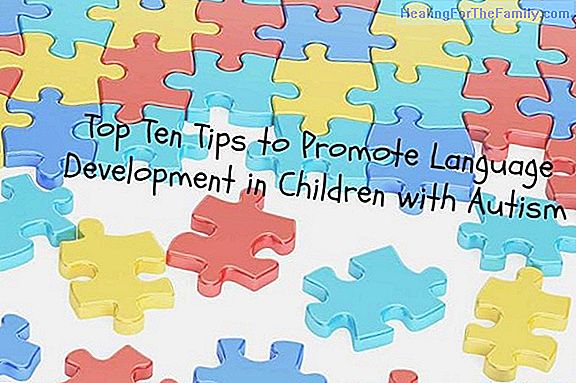Bilingual children: benefits of bilingual education
Bilingual children acquire numerous benefits derived from their bilingual education. The development of bilingualism in children at an early age causes the neuronal connections in the brains of bilingual children to be different from those of monolingual children, increases the capacity to socialize
Bilingual children acquire numerous benefits derived from their bilingual education. The development of bilingualism in children at an early age causes the neuronal connections in the brains of bilingual children to be different from those of monolingual children, increases the capacity to socialize and delays the onset of Alzheimer's symptoms by an average of 5 years. years with respect to monolingual people.
Benefits of bilingual education in children

A bilingual education produces a large number of benefits for the child throughout his life. We can group these benefits into intellectual abilities, socio-cultural, economic and health benefits.
Development of intellectual skills in bilingual children:
The development of bilingualism in children at an early age, causes that the neuronal connections in the brain of the bilingual child, are different from those of a monolingual child. Since the brain of the bilingual child was developed to assume the ability to access the two languages quickly and effortlessly, these variations of the bilingual brain in front of a monolingual brain, not only affects this specific cognitive ability, but also at the same time the brain will have acquired a different way of analyzing and interpreting the environment, doing it in a more effective way than the monolingual child.
Some of the cognitive capacities enhanced by bilingualism in children are:
- It develops the executive function of the brain. Whose objective is to direct the attention process, in order to plan and organize ourselves.
- The bilingual child will have a better spatial vision. Se - The ability to concentrate incrementa is increased, ignoring more unnecessary distractions than the monolingual child.
- Improves memoryboth in the short and long term.
- Improves the area of creativity of the child.
- Stimulates the child's facility a when learning more languages. Social-cultural benefits of bilingualism for children
: The world tends towards a globalization in which people are increasingly closer. Thanks to tourism and immigration, the number of couples speaking in different mother tongues has grown. Cultural exchange and social relations has made the need to learn a second language a reality.
Bilingualism promotes social inclusion, it is a very important weapon to be able to know other cultures and favors the integration with people from other parts of the world. In addition, it increases the capacity to socialize and, at the same time, helps to overcome shyness.Economic benefits
of bilingualism for children
:
Until a few years ago, proficiency in a second language helped greatly in getting some specific jobs. With the arrival of the Internet and global markets, English has gone from being valuable to being essential. In addition, the trend in job offers in which a very high level of English is required continues to increase year by year, both in the number of offers and in the level of English required.The development of bilingualism at an early age gives us an important advantage when it comes to finding a job, and learning a third language at the school stage.Health benefits
of bilingualism for children
:
In 2010, the Rotman research institute presented a study in which they showed that, although bilingual people are also susceptible to Alzheimer's, the symptoms in bilinguals appear a lot later than in monolingual people.The ability of the brain to connect and disconnect a language, creates a system prepared for changes and errors, storing certain information in a different way than the monolingual brain. Therefore, the symptoms of Alzheimer's are delayed by an average of 5 years compared to monolingual people.












